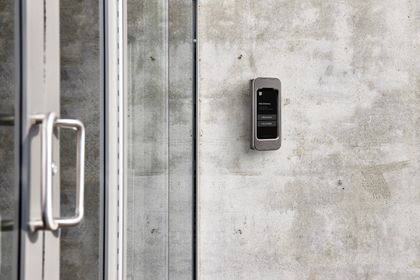Security is one of the most pressing challenges in the management of commercial real estate. Security incidents and poor safety reports can negatively impact occupancy rates. Given this, property managers and owners must take the right steps to safeguard and secure their premises with the right commercial real estate technology.
Modern access control systems ensure that only authorized individuals are allowed into your commercial property. This allows property managers to protect from vagrancy, theft, violence, and vandalism.
Choosing the right access control system is the first step to implementing security and safety processes. Based on industry trends and our interactions with commercial real estate customers, we put together a few considerations for finding the best access control system.
7 Considerations for Choosing a Commercial Real Estate Access Control System
- 1. System Design
- 2. Platform Integration
- 3. Ease of Use
- 4. Cost & Affordability
- 5. Future Relevance
- 6. Maintenance Requirements
- 7. Unique Features
1. System Design
Not all commercial real estate technology is the same. It is important that you think about your property security needs and then find a system that addresses them. What kind of tenants are you protecting? If you are housing high-risk tenants such as jewelry stores in your property, then you’ll want a system that provides strict access control, possibly even two-factor authentication. Below are some questions you could ask to help you find the best system design for your needs:
- How many access permission levels does the system support? Does it offer the kind of flexibility to manage your tenants and employees?
- How does the system need to be managed or monitored? Do you need to hire dedicated staff or is it easy enough that you can do it yourself?
- What access options work best for your tenants (PIN pads, face recognition, mobile unlock, cloud based access, video intercom, etc). Does the system you are considering offer these options?
- How secure is the system? Has it been developed by an established company that has competent engineers?
The right access control system for your commercial building should satisfactorily answer all these questions.
2. Platform Integration
Many property managers and owners looking for an access control solution want to upgrade from a legacy system. If you fall in this category, you want to work with a solution that integrates with your existing commercial real estate technology. This makes upgrading much easier and seamless while also reducing costs. Real estate managers who want to bring mobile phones to the security experience need access readers that support BLE or NFC technology. Adopting a system that is flexible can go a long way to reduce ongoing security management costs.
3. Ease of Use
Many legacy systems are complicated and need the expertise of IT professionals to run smoothly. Updating the software may be a challenge, and lost key cards may need to be replaced almost daily. Naturally, property managers prefer systems that are much easier to use and manage. Modern commercial real estate technology allows you to perform actions via a highly intuitive cloud based dashboard. You can log in from anywhere (and from any device) to grant or revoke access. There are no technical qualifications required to implement your security policy.
4. Cost & Affordability
Many businesses are trying to keep costs low, particularly after the economic disruption caused by COVID-19. Any commercial real estate technology system that is hosted within your property requires a heavy investment in hardware and software. These may not be a feasible option for many property managers. Affordable access control options exist for the CRE segment. For instance, Swiftlane’s radically modern access system is available at the cost of a key card system.
5. Future Relevance
The security landscape is changing at a very rapid pace. What is an asset now may be a liability in the near future. Take, for instance, key card access controls that have been the workhorse of the industry for years. These now pose more challenges than benefits. Many types of key cards can be hacked using fairly inexpensive equipment. Systems that are already facing difficulties will likely run obsolete in the next few years. Property managers and owners can however benefit by choosing commercial real estate technology based on resilience and projected trends.
6. Maintenance Requirements
Many traditional access control systems require time-consuming, manual updates. This can lead to security vulnerabilities should the admin forget to instal updates on time. Commercial real estate property owners can now choose cloud-based systems that are safer and easier to maintain. Updates are installed automatically over the cloud, which means that security issues are patched immediately. This reduces the maintenance burden on the side of the property manager/owner.
7. Unique Features
Last but not least, it may help to look at the unique features each system offers. This allows you to find a platform that offers maximum value for money. Some solutions have bonus security features such as one-time-automatic PIN for visitors. This can be a life saver for property managers who need to continuously let in delivery people and maintenance personnel. Swiftlane access readers come with an integrated video intercom that is ideal for remote visitor verification.
Conclusion
Robust commercial real estate technology will ensure the safety and security of your tenants and assets. The above considerations should guide you to the right system. If you feel overwhelmed, our consultants for the commercial real estate space can help. Simply get in touch with Swiftlane for a hands-on discussion to identify your specific system needs.




